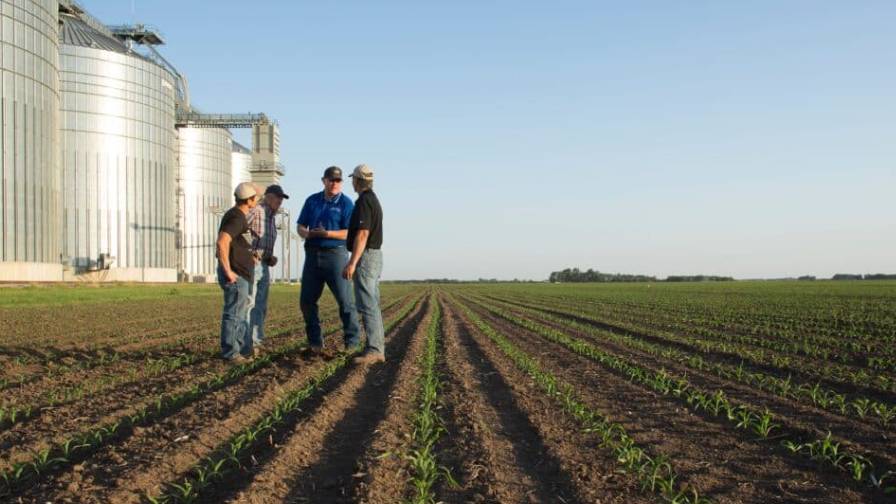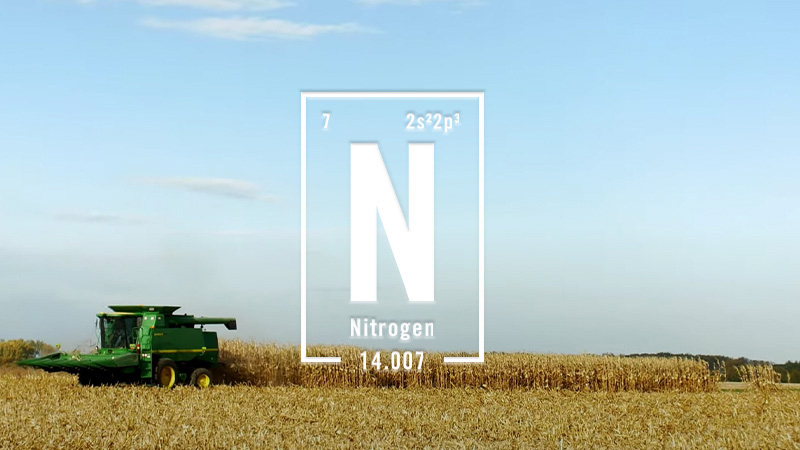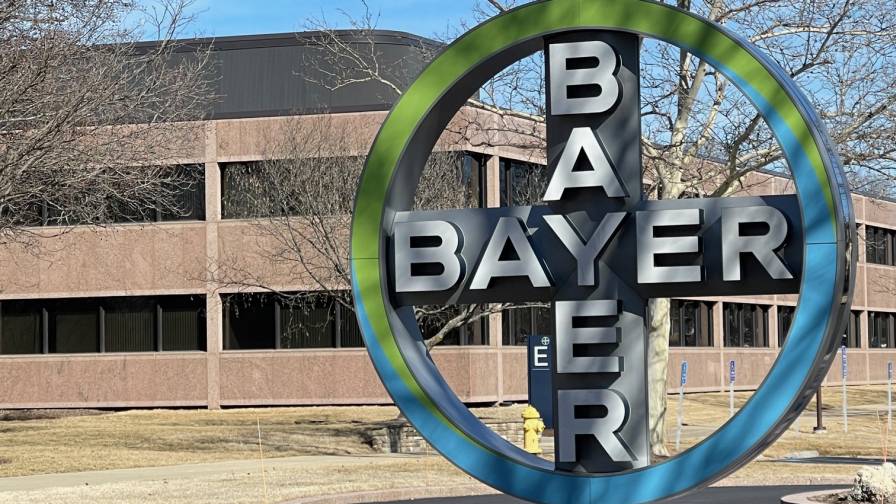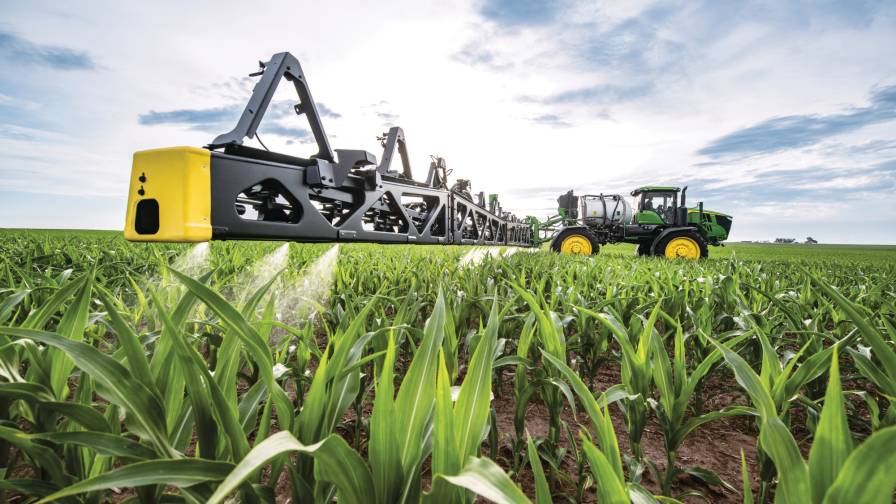Monsanto Set To Launch IFS
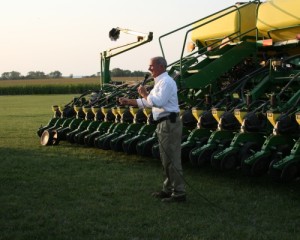
Greg Sauder, president of Precision Planting, talks about the benefits of hydraulic planting depth control technology during Monsanto’s FieldScripts field day at the Farm Progress Show.
At the 2012 Farm Progress Show in August, Monsanto shared details on its plan to provide planting and hybrid recommendations for purchasers of its seed products through its Integrated Farming Services (IFS) precision agronomy effort.
Through IFS, Monsanto is planning to leverage its knowledge of its own germplasm and biotech traits, along with its own data about relative performance in a wide range of real world field conditions (amounting to millions of data points) to deliver specific seed selection and plant population recommendations to growers, heretofore branded as FieldScripts. It has developed proprietary algorithms it believes can deliver solid localized recommendations to eventually any grower, anywhere.
Three top executives with the company, Jon Jansen, Dave Rhylander and John Raines, who is the IFS commercial lead, have been working with IFS Strategy Lead Ted Crosbie, who’s championed this effort throughout its evolution at Monsanto. At Farm Progress, Chief Technology Officer Robb Fraley was on hand to kick off the event.
Monsanto is rolling things out slowly for 2013, with specially selected growers in Indiana, Illinois, Iowa and Minnesota, working with selected seed dealers on DeKalb branded corn hybrids. The seed dealer will be critical to the process, acting as trusted advisor, central communicator and technical specialist to bring growers into the program effectively.
Growers who sign onto FieldScripts will be required to dedicate a minimum number of acres to the program, and they will submit any historical data they can provide on soil and fertility, yield, past hybrids planted and cropping practices. Monsanto will take that information and provide specific hybrid and variable-rate (where required) plant population recommendations to the grower.
In this launch phase, growers will be required to use planter technology built by Precision Planting, the company Monsanto acquired earlier this year. Monsanto also announced the addition of hydraulic downforce control at the planter box level to the Precision Planting system, which it claims will greatly increase the consistency of planting depth.
Monsanto plans to widely release this offering for DeKalb hybrids in 2014 and provide more growers with the opporutnity to utilisze FieldScripts. Eventually the program will be widened to include other Monsanto branded seeds, and soybean varieties as well.
The Effect On Retailers
Several retailers were contacted for this story and declined to comment on what this will mean for their precision programs in the future. But retailers who are carrying both Monsanto seed and technology from Precision Planting may be able to turn it into an advantage.
Mark Powell, seed sales manager at BRANDT, is gearing up to participate in the pilot next year and getting ready for the full commercial launch in 2014.
“We will have two salespeople and a technical support person who will know and understand all the Precision Planting technology,” says Powell. “We’re going to be coming to here to the Huxley, IA, facility they’ve built for training as well. We will choose four or five growers for the pilot next year to implement the program.”
BRANDT sells DeKalb seed and is a Precision Planting dealer, and already has a wide ranging precision agriculture program, encompassing fertility, micronutrients, and other specilized recommendations designed to maximize yield. He feels that FieldScripts fits in well with BRANDT’s current offerings.
“Our agronomic recommendation process would traditionally start with a soil test, a fertility recommendation, and then the grower would pick a hybrid off of a list of top performing seed from test plots,” says Powell. “This is a little different thinking, using soil tests and past performance of hybrids and management zones, and fitting that hybrid to the field.”
“We like it,” he continues. “It is in line with where we were headed with our seed recommendations.”
At this point, Powell isn’t nervous about Monsanto’s move into precision recommendations being a threat to his overall precision business. “You have to have people on the ground for this program to work effectively, and it requires a lot of manpower. Dealer networks provide that and I think it will only enhance what we can provide to customers.”
Powell adds that it’s very difficult to become an IFS certified dealer, and this will make them a needed partner in the process. “Every guy won’t measure up to that standard,” he says. “I think it will be a good partnership.”

